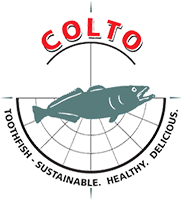The UK Overseas Territory of South Georgia & South Sandwich Islands is this week launching an ambitious conservation effort to help protect the albatross.
South Georgia is a globally important breeding site for a number of seabirds, including black-browed, grey-headed and wandering albatrosses. These species are protected and have been closely monitored by researchers since the 1950s. Despite this, South Georgia’s albatross populations have declined significantly, with the main cause attributed to incidental mortality associated with fisheries operating outside of South Georgia’s maritime zone.
The announcement coincides with the publication in the journal Polar Biology of research charting the decline of albatross populations at South Georgia over several decades. As a result the birds have been designated as ‘Priority Populations’ by the Agreement on the Conservation of Albatrosses and Petrels (ACAP).
The Government of South Georgia & the South Sandwich Islands has collaborated with the fishing industry to protect albatross in the waters around South Georgia. Modern fisheries management techniques have all but eliminated seabird by-catch within the South Georgia maritime zone and supported the designation of the toothfish fishery as the highest-scoring Marine Stewardship Council certified fishery in the world. However, the vast distances that albatrosses travel to forage, which can cover many thousands of miles, brings them into contact with other, less well-managed, fisheries.
GSGSSI is now looking to better understand and address these external threats, and is delighted to be working in conjunction with the Royal Society for the Protection of Birds (RSPB) to undertake an initial study that will identify where and when albatrosses are at risk so as to better target education, conservation and monitoring programmes.
At the heart of the conservation effort announced this week are Conservation Action Plans, intended to serve as a framework to guide, in an informed, prioritised and co-ordinated manner, actions required to improve the conservation status of albatross populations at South Georgia and globally. The UK Government, along with other key organisations such as British Antarctic Survey (BAS) and RSPB, support these plans and is helping to implement them.
Head of Conservation Biology at BAS, Dr Phil Trathan, says: “I am delighted to hear these plans have been launched to protect albatrosses around South Georgia. Our long-term monitoring programmes for these iconic birds at our Bird Island Research station clearly show their decline, however, we are hopeful that with these new conservation plans and working with others, we can help bring about management actions that will enable these species to recover to their previous levels.”
-From Phys.org

